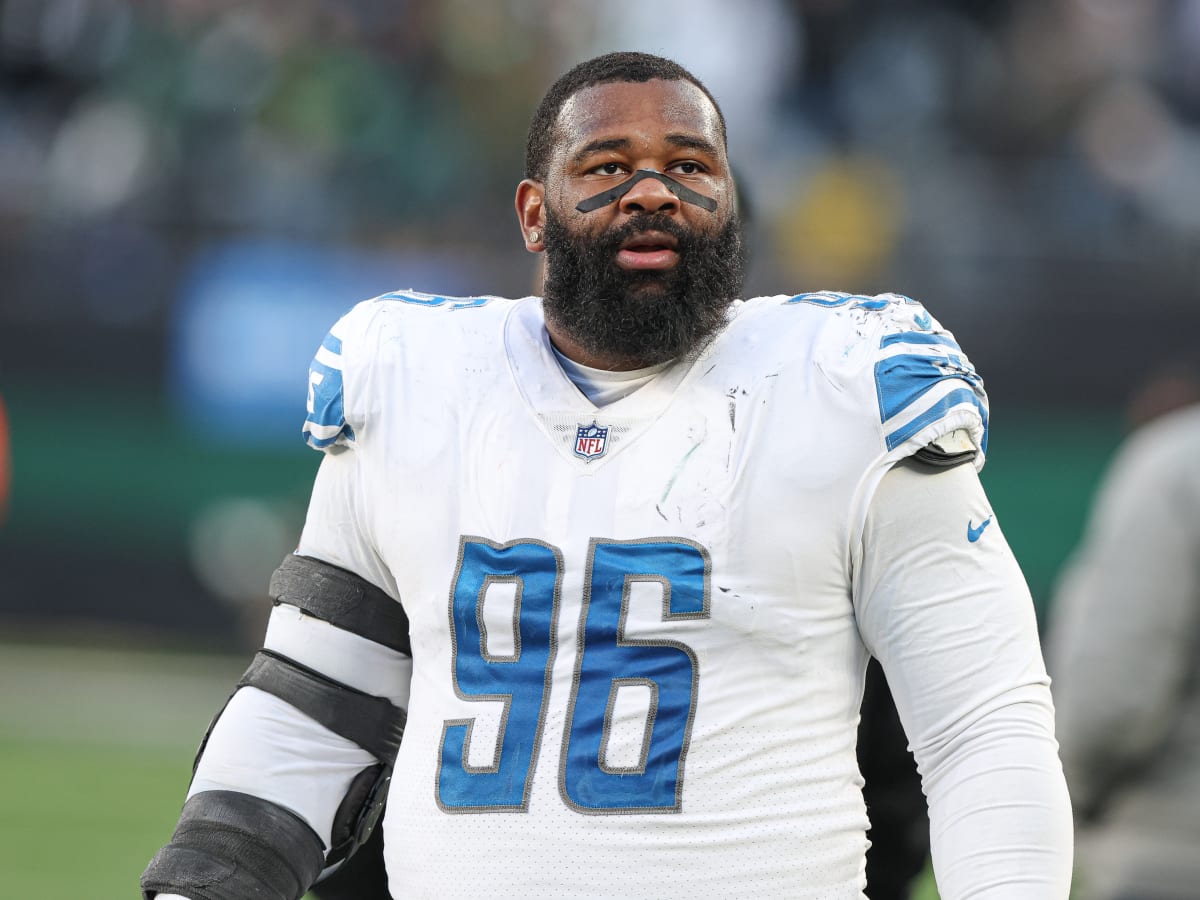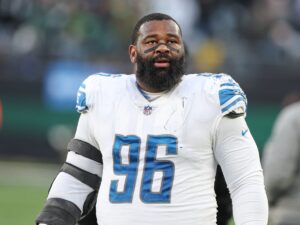
Isaiah Buggs had once stood as a paragon of athletic prowess and discipline. As a formidable defensive lineman for the Kansas City Chiefs, his powerful presence on the field had been instrumental in their recent Super Bowl victory. Yet, away from the dazzling lights and roaring crowds of the stadium, a darker narrative was unfolding. A narrative that starkly contrasted the celebrated figure seen by millions.

Buggs’ life began humbly in Ruston, Louisiana. Raised in a close-knit community, he excelled in football from a young age, quickly becoming a local hero. He carried this passion into his college years, eventually securing a spot in the NFL, where his star only continued to rise. By 2023, he was not just a player but a key defensive asset for the Chiefs. However, behind this success lay personal struggles that few could have anticipated.
In February 2024, just weeks after lifting the Lombardi Trophy, Buggs was thrust into the spotlight for all the wrong reasons. He was charged in an animal cruelty case, an allegation that shocked his fans and teammates alike. Details were sparse, but the accusations painted a grim picture: Buggs was alleged to have neglected and abused a pet dog, leaving it in a state of severe malnutrition and illness. The media frenzy that ensued was relentless. Sports commentators, animal rights activists, and fans all weighed in, their opinions polarized.
The Chiefs organization expressed their concern but also extended support, hoping Buggs could navigate through these troubling times. For Buggs, the court hearings and media scrutiny were a far cry from the disciplined regimen of training and game preparation he was accustomed to. Despite the support from his team and some loyal fans, the case began to take its toll on his mental health and performance.
One evening in mid-June 2024, Buggs found himself at the center of another scandal. Following a heated altercation at a downtown Kansas City nightclub, Buggs was arrested again, this time on charges of assault and disorderly conduct. Witnesses claimed that Buggs had been visibly intoxicated and belligerent, instigating a fight that quickly escalated out of control. When police arrived at the scene, they found Buggs in a violent struggle with another patron, both men bloodied and enraged.
News of his second arrest spread rapidly, overshadowing even the most sensational sports stories of the day. The Chiefs, now in a precarious position, were forced to release a statement. Head Coach Andy Reid expressed his disappointment and concern for Buggs’ well-being, while also reaffirming the team’s commitment to uphold the highest standards of conduct. Reid announced that Buggs would be indefinitely suspended pending further investigation and counseling.
In the days following the arrest, the media delved deeper into Buggs’ background, unearthing a history of personal struggles that had gone largely unnoticed during his ascent in the NFL. Close friends and former teammates spoke of a young man who had faced immense pressure and scrutiny from a young age, struggling to balance the demands of his burgeoning career with a tumultuous personal life. Some recounted episodes of anger and depression, hinting at a pattern of behavior that had been quietly managed but never fully addressed.
Buggs, now sitting in a holding cell, faced a crossroads. His career, once marked by glory and triumph, was now overshadowed by legal battles and public scorn. Reflecting on his actions, he realized the gravity of his situation. The fame and adulation he had enjoyed seemed distant and ephemeral, replaced by the cold reality of his present circumstances.
Amidst the chaos, Buggs received an unexpected visitor – his high school coach, Derrick Thompson. Coach Thompson had been a pivotal figure in Buggs’ early life, a mentor who had nurtured his talent and instilled in him a sense of discipline and purpose. Seeing Buggs in such a state was heartbreaking for Thompson, but he knew this was a moment that required tough love and honesty.
“Isaiah, you’ve hit rock bottom,” Thompson said, his voice steady but filled with concern. “But this doesn’t have to define you. You’ve got to take responsibility and make amends. It’s not too late to turn things around.”
Buggs, though initially defensive, gradually opened up about his struggles. The pressures of maintaining a high-profile career, the isolation, and the unresolved issues from his past had all contributed to his downfall. Thompson listened patiently, offering guidance and reminding Buggs of the resilience and strength he had shown on the field.
Encouraged by this conversation, Buggs decided to seek professional help. With the support of the Chiefs organization, he entered a comprehensive rehabilitation program that focused on both his mental health and behavioral issues. The process was grueling, requiring him to confront painful truths and make significant changes in his lifestyle and mindset.
The road to recovery was neither quick nor easy. Buggs faced intense scrutiny from the public and the media, with every step of his journey closely monitored and critiqued. However, he remained steadfast in his commitment to change, drawing strength from the support of his loved ones and the belief that he could redeem himself.
Months passed, and Buggs began to show signs of genuine progress. He participated in community service, working with animal shelters and youth programs to raise awareness about the consequences of neglect and violence. These efforts, though initially met with skepticism, gradually began to restore some of his tarnished reputation.
By the end of the 2024 season, the Chiefs organization decided to reinstate Buggs, recognizing the sincere efforts he had made to turn his life around. His return to the team was met with mixed reactions, but Buggs was determined to prove that he was worthy of a second chance.
On the field, Buggs displayed a renewed sense of focus and determination. Off the field, he continued his advocacy work, using his platform to speak out against animal cruelty and to promote mental health awareness. His story, once a cautionary tale of downfall and disgrace, began to evolve into one of redemption and hope.
Isaiah Buggs’ journey was far from over, but he had taken the first crucial steps towards rebuilding his life and career. Through perseverance and a willingness to confront his demons, he demonstrated that even in the face of overwhelming adversity, it was possible to find a path to redemption. And in doing so, he hoped to inspire others to believe in the power of second chances.
Leave a Reply